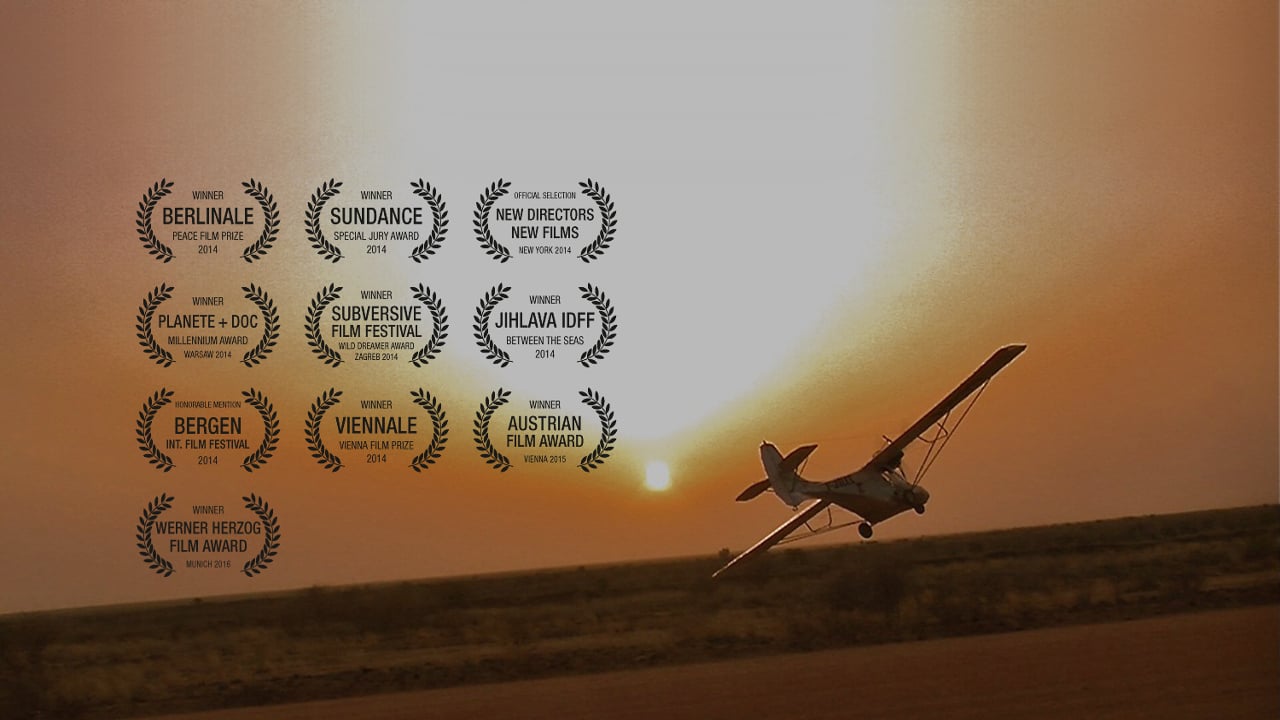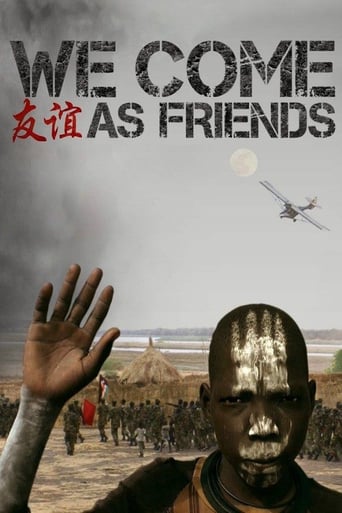Flyerplesys
Perfectly adorable
Reptileenbu
Did you people see the same film I saw?
Patience Watson
One of those movie experiences that is so good it makes you realize you've been grading everything else on a curve.
Staci Frederick
Blistering performances.
Ntando
I'm actually in awe of how brilliantly and subtly this story is told. The director takes us from understanding the differences between Sudan and South Sudan to diving into the new forms of opportunism and a much more sophisticated form of colonialism disguised as aid. This is all done with very little narration.If you are interested in understanding the modern war for resources and how the American empire operates this documentary is a good place to start. One can only hope that the people of Sudan find a way to help the people of the country and reap the benefits of their land. What I find striking about the documentary is its lack of an agenda and forces the viewer to draw their own conclusion.Educational and touching. Worth a watch and share.
De_Sam
The most-used narrative scheme in American documentaries, which has influenced many other national trends in that genre, is to drive the point home by repeating it, often ad nauseam. Hubert Sauper wisely uses a different tactic, showing as much sides to his subject as possible. Many perspectives are shown in a neutral way, the moral evaluation, problem definition and causal interpretation is left to the viewer.The contextualisation that is used to introduce the subject emphasises this; we, the western audience, are alien to the concrete situation in South-Sudan. Every bit of information we receive through the media is filtered and framed is such a way that we have no clear view on the state of neocolonialism in Africa. Instead of the standard, Western political-economic discourse (mainly the exploitation of Africa by so-called 'helping' investors), Hubert Sauper also presents the results of religious rifts (the main ones are foreign imports, i.e. Christianity and Islam), the Chinese political-economic views on both Africa and the USA, the views of local civilians and leaders, the ecological effects of the exploitation and, most importantly, the forced adaptation of the English language (and Western culture in general) to be taken serious and be able to communicate with the Western World.To conclude, Entente Cordiale (We Come as Friends) is a good documentary, as it criticises our limited knowledge of and view on African culture after we wrongly deemed them to be freed from colonial forces.
rider_009
This film requires patience and attentiveness, there are some lulls to push through, so I recommend it while you are alert and present. My first attempt regrettably resulted in falling asleep on the couch. My second attempt resulted in a full appreciation for the masterpiece that is this fine documentary. One can appreciate the time Sauper took to embed himself in the Sudanese landscape. He delivers such a comprehensive illustration of what is occurring, who the major players are, and who is being affected on the ground by the mass exploitation of Sudan, the power struggle between North and South, and the legacy of colonialism in this war-torn country. The film making is gritty and superb. There are ever-present contrasts between the have's and the have-not's - some nuanced and fleeting, others bold and direct, all very deliberate and scathing in their portrayal of the unjust inequality that permeates not only Sudan, but one can imagine exist in many other regions with UN/Western Development Programmes. Not since Iraq in Fragments have I had such an involving, frustrating and rewarding cinematic experience.
Hint523
Opening with a shot of ants crawling on sand and around a toy airplane, it is clear from the very first shot that this is going to be a different kind of film. The next two hours are long and painful but teach so much about the people that make up this new and frustratingly conflicted country. Sauper continues with voice-over and upside-down aerial shots of planet Earth. He compares colonialism (the primary focus of the feature) as well as his own voyage to entering a foreign planet. This sets the tone for where he is going, as it is so foreign to anything we've seen in the western world. Sauper does a fantastic job of mixing his experimental and metaphorical imagery with the main focus, interviews of the people who live in South Sudan, from villagers, to missionaries, to oil drillers, and much more. All kinds of ethnicities, all sorts of moral dilemma. It is a frustrating movie to walk out of and a lot to take in, but this is a film that everyone can learn from and has a lot of potential to show the world what is going on in a place that is truly foreign but is still part of our Earth.

